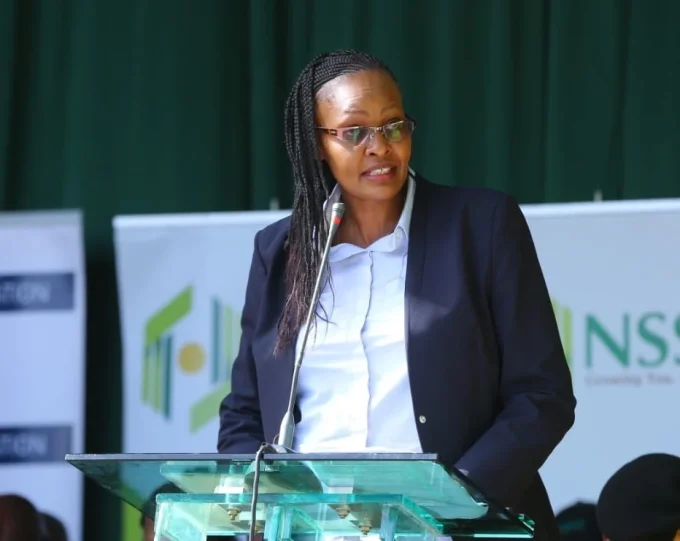The admission by Olympus Corp that it falsified financial reports for more than a decade should not shock anyone. The shock is that, for years, auditors failed to detect such massive fraud.
The failures of auditors to uncover cooked books, which run the gamut from Adelphia to Waste Management Inc, are a cancer on the accounting industry.
The failures go back years.
How about Al Dunlap’s manufactured numbers at Sunbeam in 1998? Or teenage con man Barry Minkow’s ZZZZ Best, which turned out to be a Ponzi scheme and collapsed in 1987?
Or Equity Funding, with its computer program to fabricate life insurance policies, in 1973? Or the National Student Marketing “pooling of interests” fraud in 1970, which gave birth to the Financial Accounting Standards Board? Or the 1938 McKesson & Robbins scandal, which gave us the first American audit standards? Or Ivar Kreuger’s 20 percent dividends Ponzi scheme in 1932?
That is but a sampling of big frauds that auditors somehow failed to detect, sometimes over many years during which they were supposedly scrutinizing books and looking for verification of revenue and assets. Olympus’s major businesses include building endoscopes, which let surgeons peer inside the body. How ironic that Olympus’s financial lies festered unseen for more than a decade.
Olympus removed KPMG AZSA as its group auditor in 2009 after a dispute over how to account for some controversial acquisitions, an internal document shows. Olympus told investors at the time that KPMG’s audit contract had expired and it was hiring Ernst & Young.
HIDDEN LOSSES
Olympus acknowledges the scheme dates back to the 1990s, when Asahi & Co, an affiliate of Arthur Andersen, was the auditor. Asahi became a member firm of KPMG International in 2003, and merged with AZSA & Co in 2004 to form KPMG AZSA LLC.
Ernst & Young ShinNihon LLC declined to comment, citing client confidentiality. KPMG AZSA LLC also declined comment. Modern financial history is chock full of such stories, in which managements at brand name companies hide losses, fabricate revenues, report imaginary profits and claim to have assets that turn out to be nonexistent, all of which supposedly independent auditors either fail to detect or keep quiet.
How can this be? It’s not as if auditing is a nascent field, where the problems are uncertain. New York lawmakers created “Certified Public Accountant” as a licensed occupation in 1896. Britain’s parliament required companies to keep books and let shareholder committees audit them way back in 1845, though the United States would lag that reform by the better part of a century. And the development of internal controls to prevent fraud dates back at least to the era of the Babylonian king Hammurabi, roughly four millennia ago.
It also is not as if we lack for warnings that too many auditors are in on the frauds — either looking the other way or actively helping companies hide financial lies.
Arthur Levitt, chairman of the Securities and Exchange Commission under President Bill Clinton, said in a speech at New York University in 1998 that corporate managers, auditors and analysts were taking part in a “game of nods and winks.”
“Many in corporate America are just as frustrated and concerned about this trend as we, at the SEC, are. They know how difficult it is to hold the line on good practices when their competitors operate in the gray area between legitimacy and outright fraud,” he said.
ACCOUNTING PERVERSION
He cited “a gray area where the accounting is being perverted; where managers are cutting corners; and, where earnings reports reflect the desires of management rather than the underlying financial performance of the company.”
Tony Tinker, an accounting professor at Baruch College in New York who is a leader in the critical accounting movement which favors more robust and skeptical examinations, says “auditors aren’t trying too hard to find stuff. Remember in Waste Management the management and the auditors signed a ‘contract’ to fix the mess, each year, for five years.”
Tinker points to a second problem: the SEC and other white-collar law enforcement agencies “are so understaffed and underfunded” that there is little risk of official inquiry and even less of official action.
Professor Prem Sikka, a reformer at the University of Essex in Britain, notes surveys showing that “as many as 70 percent of auditors admit to falsified audit work” in surveys of countries around the world.
“We need to look at the internal value systems and culture of the accounting firms,” Sikka said.
There is the real problem — the structure and the rules of auditing.
Why do we let corporations pick their auditors? Why do we have only four big firms instead of a dozen, a score or more? Why doesn’t government do the audits, as the IRS does tax audits? Why is law enforcement handcuffed by inadequate budgets and rules that hinder investigations? Why are auditors allowed to quietly resign instead of being required to blow the whistle?
Auditing needs a shakeup, fundamental restructuring and the accounting firms need a serious debate about their failings, practical and moral.
Honest auditors and honest managers need to renew Levitt’s call for fundamental reform. They need to press for actual reform, not just talk, so bad practices do not drive out good.
Until we get structural reform the history of gross failings by all of the Big Four are sure to continue. And that means no one’s investments can be safe.
[fluid-player-extended vast_file=”https://vast.doubleverify.com/v3/vast?_media=3&ctx=21179234&cmp=31351448&sid=7296202&plc=386665376&adsrv=166&blk=1&psf=1&_vast=https%3A%2F%2Fad.doubleclick.net%2Fddm%2Fpfadx%2FN1243037.3586504BUSINESSTODAY-KE%2FB31351448.386665376%3Bsz%3D0x0%3Bord%3D%7Bs1%7D%3Bdc_lat%3D%3Bdc_rdid%3D%3Btag_for_child_directed_treatment%3D%3Btfua%3D%3Bdc_tdv%3D1%3Bdcmt%3Dtext%2Fxml%3Bdc_sdk_apis%3D%7Bs2%7D%3Bdc_omid_p%3D%7Bs3%7D%3Bdc_mpos%3D%7Bs4%7D%3Bltd%3D&_s1=[timestamp]&_s2=[APIFRAMEWORKS]&_s3=[OMIDPARTNER]&_s4=[BREAKPOSITION]&_api=%7Bs2%7D&_ssm=[SERVERSIDE]&_tsm=[TIMESTAMP]&gdpr=${GDPR}&gdpr_consent=${GDPR_CONSENT_126}&_abm=[APPBUNDLE]&_pum=[PAGEURL]”]
[fluid-player-multi-res-video]
[
{“label”: “640”, “url”: “https://cdn.fluidplayer.com/videos/valerian-720p.mkv”},
{“label”: “480”, “url”: “https://cdn.fluidplayer.com/videos/valerian-480p.mkv”}
]
[/fluid-player-multi-res-video]
[fluid-player-html-block]
[/fluid-player-html-block]
[/fluid-player-extended]
















































![Pula Co-Founders and Co-CEOs, Rose Goslinga & Thomas Njeru. Pula provides agricultural insurance and digital products to help smallholder farmers manage climate risks, improve farming practices and increase their incomes. [ Photo / Courtesy ]](https://businesstoday.co.ke/wp-content/uploads/2021/01/Pula-Co-Founders-and-Co-CEOs-Thomas-Njeru-Rose-Goslinga.jpg)




























































Leave a comment